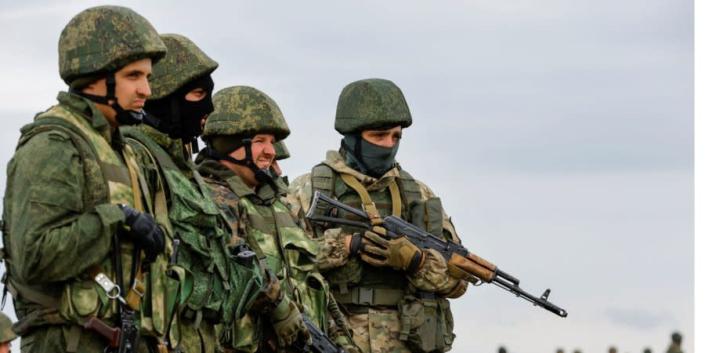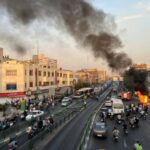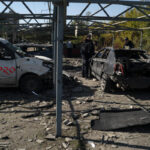
Read also: Russian dictator Putin announces partial mobilization, threatens to use nukes
As ISW previously reported, Putin announced the postponement of Russia’s usual autumn conscription cycle from Oct. 1 to Nov. 1 on Sept. 30, likely because Russia’s partial mobilization is taxing the bureaucracy of the Russian military commissariats that oversee the semi-annual conscription cycle.
Putin therefore likely needs to pause or end his partial mobilization to free up bureaucratic resources for conscription, the analysts say.
He ordered the conscription of 120,000 men for the autumn cycle, 7,000 fewer than in autumn 2021. However, Russia’s annexation of occupied Ukraine changes the calculus for conscripts.
Read also: Seven key takeaway’s from Putin’s “partial mobilization”
“Putin may intend for mobilized personnel to plug gaps in Russia’s frontlines long enough for the autumn conscripts to receive some training and form additional units to improve Russian combat power in 2023,” reads the assessment.
Analysts noted that the Russian dictator’s statement about five-10 days of “initial training” of the mobilized forces corroborates dozens of anecdotal reports from Russian outlets, milbloggers, and mobilized personnel of untrained, unequipped, and utterly unprepared men being rushed to the frontlines, where some have already surrendered to Ukrainian forces and others have been killed.
Meanwhile, Ukrainian and Western officials continue to reiterate that they have observed no indicators of preparations for a Belarusian invasion of Ukraine, despite alarmist reports in the Belarusian information space that dictator Alexander Lukashenko has introduced a “counter-terrorist operation” regime.
Despite the contradicting claims of an escalated preparatory regime in Belarus, the White House said there are no indicators that Belarusian troops are preparing to enter Ukraine.
Read also: Ukrainian army advances to Svatove as criticism of mobilization in Russia mounts – ISW
ISW continues to assess that joint Belarusian and Russian forces will not invade Ukraine from the territory of Belarus. Russian forces continue to attrit their own combat capabilities as they impale themselves on attempts to capture tiny villages in Donbas and simply do not have the combat-effective mechanized troops available to supplement a Belarusian incursion into northern Ukraine and certainly not to conduct a mechanized drive on Kyiv.
At the same time, Russian authorities are continuing to engage in “Russification” social programming schemes that target Ukrainian children. Occupation authorities in Russian-occupied Mariupol are also reportedly pressuring Ukrainian teenagers to join the “Youth Guard,” a children’s paramilitary organization that encourages anti-Ukrainian sentiments.
Read also: About the death of Putin and his entire system
“The coerced engagement of Ukrainian children in youth militarization programs fits into wider Russification schemes intended to erase Ukrainian identity in Russian-occupied parts of Ukraine,” the analysts said.
According to ISW, Putin’s Oct. 14 statement that there is currently no additional need for further massive strikes against Ukraine was likely aimed at mitigating informational backlash among pro-war milbloggers who oppose curtailing the costly missile campaign.
“Putin’s statement supports ISW’s previous assessment that Putin knew he would not be able to sustain high-intensity missiles strikes for a long time due to a dwindling arsenal of high-precision missiles,” the report says.
Read also: Russia accuses Ukraine of terrorism, Iranian instructors help Shahed-136 launches – ISW
ISW also presents other key findings:
-
a prominent Russian milblogger accused unspecified senior officials within the Russian Ministry of Defense (MoD) of preparing to censor Russian milbloggers on Oct. 14, but there is no official confirmation of an investigation or prosecution of these milbloggers;
-
Russian sources continued to claim that Ukrainian forces are conducting counteroffensive operations in northeast Kharkiv Oblast east of Kupyansk;
-
Russian troops conducted limited ground attacks west of Kreminna and Kherson Oblast in order to regain lost positions. Russian troops also continued ground attacks around Bakhmut and the city of Donetsk;
-
Russian authorities expressed increasing concern over Ukrainian strikes against Russian rear logistics lines in southern Donetsk Oblast;
-
Russian occupation authorities are continuing to consolidate control of the Zaporizhzhya Nuclear Power Plant (ZNPP) through strengthened security measures amid negotiations to establish a nuclear safety and protective zone at the plant;
-
Russian officials continued to brand their movement of populations out of Kherson Oblast as recreational “humanitarian trips” rather than evacuations.
Read the original article on The New Voice of Ukraine




